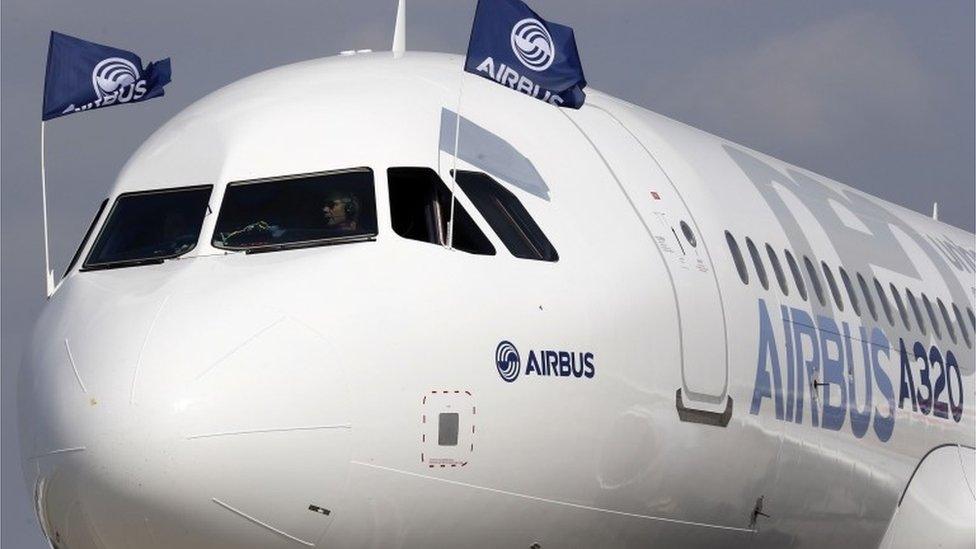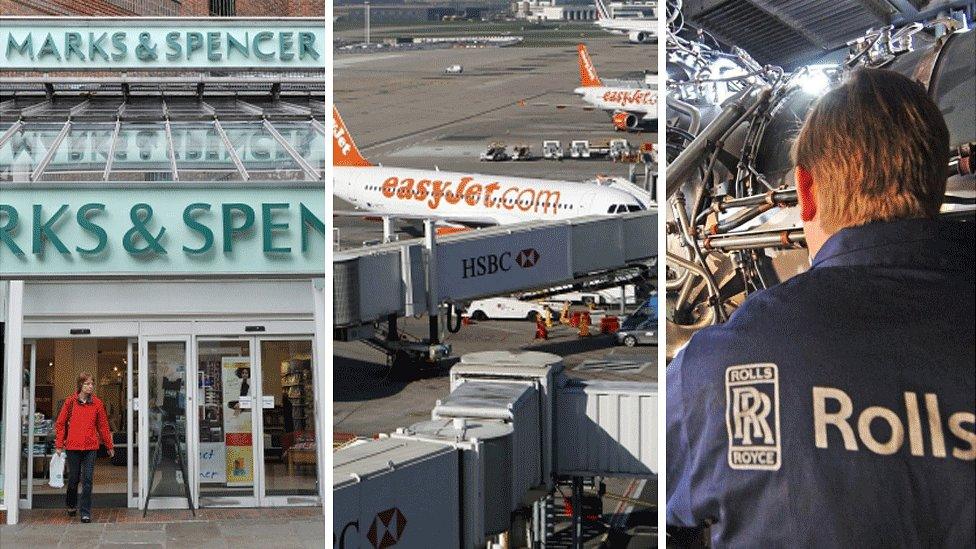EU referendum: Anchor firms back UK staying
- Published

Airbus UK wants Britain to stay in the EU
Companies employing over 14,000 people in Wales have called for the UK to remain part of the European Union.
Airbus, BT and Ford are among those who have told BBC Wales that jobs and growth will be better served by being in the EU.
It comes on the day almost 200 business people signed a letter to The Times supporting membership.
But those campaigning to leave the EU say the move would save money and trade would continue.
BBC Wales asked the Welsh government's so-called anchor companies for their position on the EU referendum.
Those are defined as global businesses with a Welsh headquarters or significant corporate presence in Wales.
Airbus employs 6,000 people at Broughton on Deeside making the wings for the company's planes.
BT has 3,000 workers in Wales, Ford employs 1,900 while Toyota has 540 workers on Deeside.
The letter to The Times , externalwas signed by the boss of Centrica, owners of British Gas which employs 2,200.
The pharmaceutical company, Norgine, which is based in Hengoed, has 340.
HSBC would not release figures for the number employees it has in Wales.

Billionaire Welsh businessman Sir Terry Matthews was another signatory of the letter which said an EU exit would deter investment in the UK.
'Better off'
Three firms from Cardiff and Vale of Glamorgan have also signed the letter.
They say the UK needs access to the European market, but Leave.EU said leaving would cut regulation and costs.
Airbus UK boss Paul Kahn and Ken Beswick, managing director of Promocorp in Cwmbran, have different views on the EU
Smaller Welsh firms which signed it included Cathy Owens, director of political consultancy Deryn Consulting in Cardiff; Kasim Ali, director of Waterloo Tea Limited in Penarth; and Daniel Williams, managing director of The Bottle Shop (Penarth).
The letter read: "Business needs unrestricted access to the European market of 500 million people in order to continue to grow, invest and create jobs.
"Britain will be strong, safer and better off remaining a member of the EU," it added.
But Richard Tice, co-founder of Leave.EU which is campaigning to leave, said Downing Street had admitted using taxpayers' money and "applying pressure" on FTSE chairmen and chief executives to sign the letter.
"Brexit will reduce unnecessary regulatory burdens and cost on business, which can be used to invest in more jobs, not less," he added.
- Published23 February 2016

- Published26 April 2015

- Published24 September 2014
